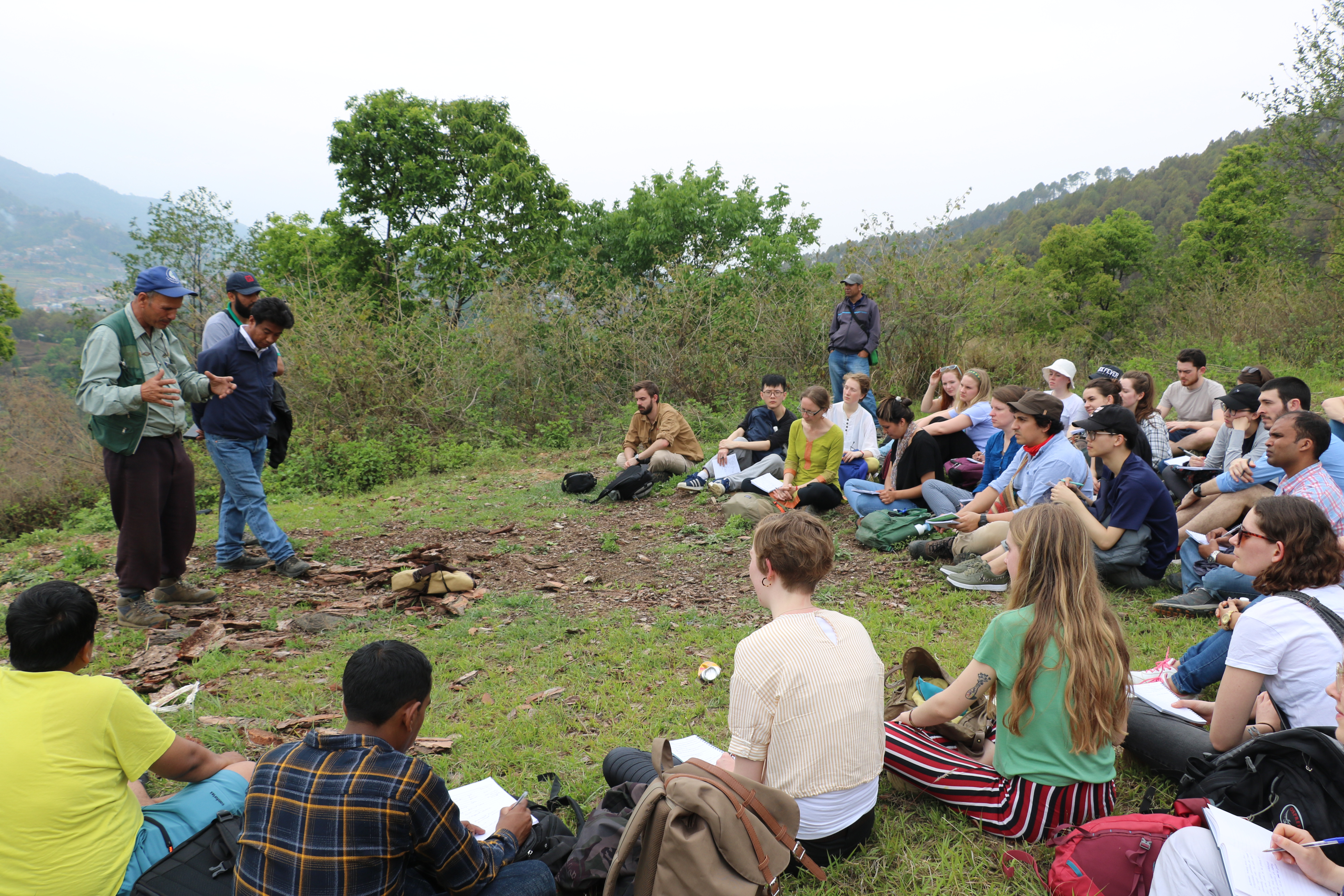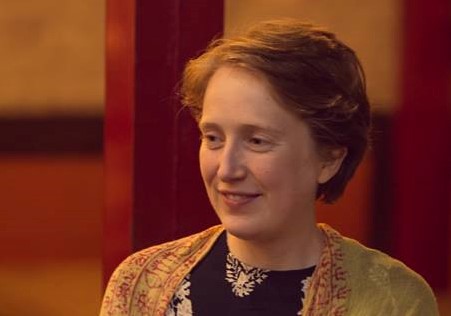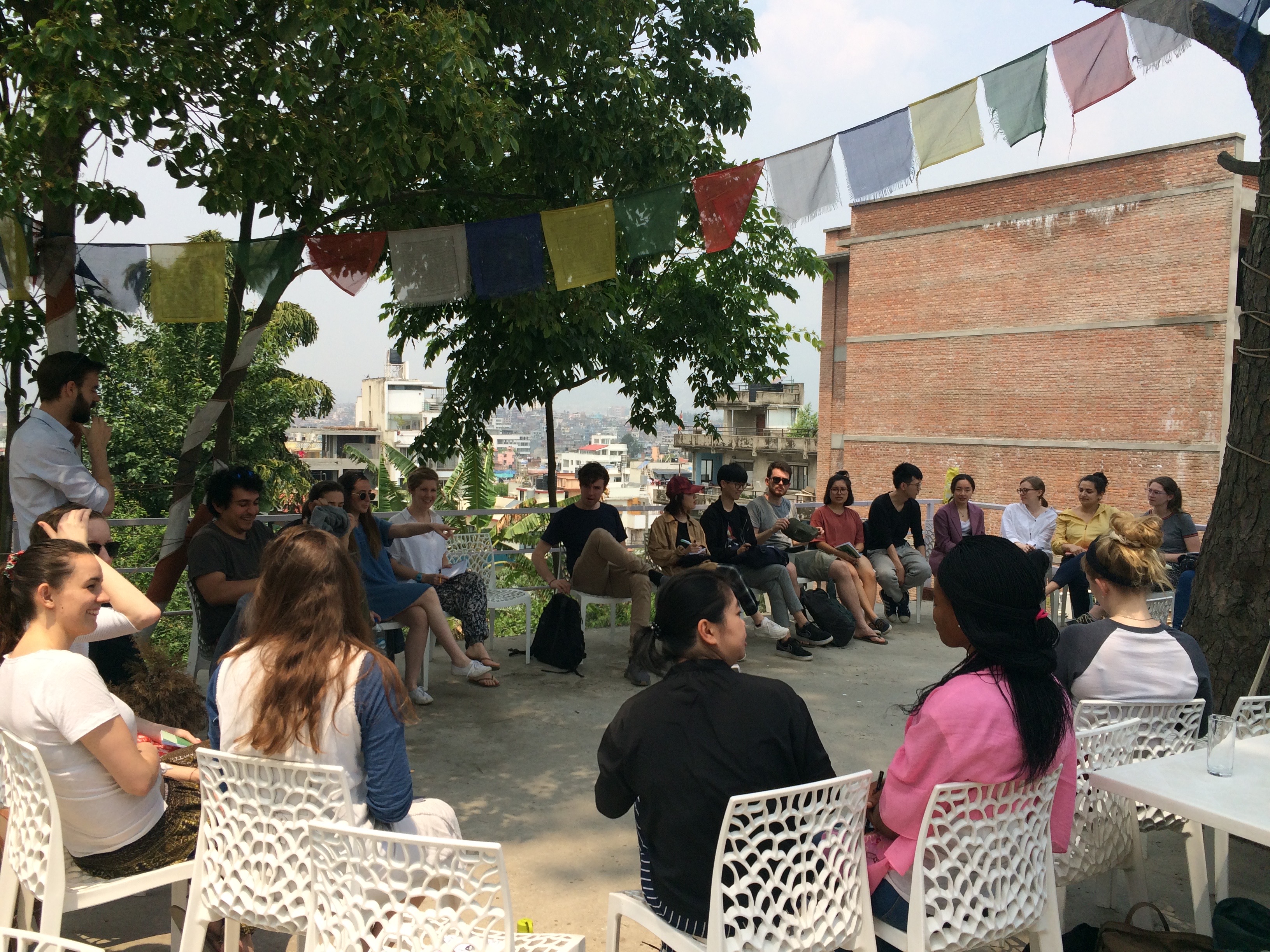You and I are no different
Nash Fleur Masters student at the University of Edinburgh
Journeying down the coast from Edinburgh to London gazing out at the sea I assumed would make me feel miles away from Kathmandu. The contrast in the scenery is hard to ignore yet there is no sense of separation in my heart. The poem I wrote below is the best way I could capture this feeling and my reflections from the trip:
You and I are no different
You and I are no different,
When one looks below the surface.
Pass the physical appearance
Pass the geographical lines
Pass the social labels
Pass the cultural binds,
Pass the pre formed assumptions
Pass the experiences had
Pass the knowledge gained
Pass the feelings of happy or sad,
You and I are no different,
When one looks below the surface.
We both have roots in compassion
We both have roots in love
We both have roots in concern for the world
So why only look just above?
You and I are no different,
When one looks below the surface.
Written on the train between Edinburgh and London, on the second day back from Nepal
The praxis of bringing those feelings of relatedness and care into the research process had made me obsessed with decolonising methodologies (West and Aini, 2018; Tuhiwai-Smith, 2012). The concepts of decolonising methodologies resonated with me yet before our trip to Nepal I still couldn’t see how one could not intentionally or unintentionally impose knowledge as a researcher. The idea of ‘being humble with one’s knowledge’, stated by one of my fellow MSc students back in Edinburgh, had haunted me ever since. Meeting Dr Edwin Cedamon, the academic researcher from the University of Adelaide at the community forest in Dhulikhel, finally exposed to me what humility with knowledge is in practice. Edwin’s deference where possible to the committee members when a question was asked and my chat with him after about how he negotiated being an outsider or insider by being clear why
he was there and what he could and couldn’t offer, gave me a refreshing insight into how one can be aware of, and constantly negotiate, their positionality in practice. The simple honesty of being reflexive as a researcher by stating what one doesn’t know is incredibly powerful especially when being more open can challenge one’s theoretical position (England, 1994). Being reflexive through recognising what you know and don’t know, what you can offer and what you can’t, what position you hold and don’t hold is for me what being humble with your knowledge is.
Reflecting back on my learning from the trip has highlighted the separation I have held in my mind between the ‘field’ and my everyday life. Whenever I have thought about positionality I have thought about myself as a researcher in the ‘field’. From going to Nepal, what I perceived the ‘field’ to be in my mind, has made me understand that the lines drawn around the ‘field’ are only arbitrary (Phillips and Johns, 2012; Katz, 1994). I am now beginning to understand, and am aware that it is a constant learning process, that positionally is never something you get rid of, that it is something you have to negotiate with each person and context you are in (Phillips and Johns, 2012; Sultana, 2007; England, 1994; Katz, 1994). I was left with the following final questions in my reflective diary:
“Once aware of one’s positionality can you really turn your awareness on and off?”
“Does one only have obligations to be reflexive when you put on your researcher hat?”
“Should we always being thinking about our positionality in whatever we do?”
Personal reflections when back in Edinburgh
From my experience in Nepal I would argue that positionality occurs between you and another in any experience you have, be it buying something from a shop in Edinburgh, to listening to a lecture, to speaking to a stranger outside your back door or in another country. Ethical issues do not just permeate every aspect of the research process (Lunn, 2014), but every aspect of one’s life. For me the ‘field’ is everywhere and subsequently nowhere. Those academics who do not what to go into the ‘field’ are in it whether they like it or not.

I am extremely fortunate to have had this experience and so grateful to all those who made it possible, from people in Nepal and Edinburgh to my fellow classmates. I learnt more than I could have imagined, on an academic as well as personal level. Going forward into my PhD, career and life, Nepal has taught me to be humble in my knowledge by not shying away from my positionality and not separating myself physically or emotionally from people I interact with in my professional and personal life. After all:
You and I are no different,
When ones looks below the surface.
Publish date: 2019/05/13
“Views expressed here are personal and not associated with any affiliated organisations”
References
England, K. (1994) “Getting Personal: Reflexivity, Positionality, and Feminist Research” The Professional Geographer, 46(1): 241-256
Katz, C. (1994) “Playing the Field: Questions of Fieldwork in Geography” The Professional Geographer, 46(1): 67-72
Lunn, J. (2014) “Rethinking ethics in field research” in Lunn, J. (eds.) Fieldwork in the Global South. Ethical challenges and dilemmas, Routledge
Phillips, R. and Johns, J. (2012) “Fieldwork for Human Geography” SAGE Publications Ltd, Chapter 4: Ethics: Positioning Yourself and Encountering Others
Sultana, F. (2007) “Reflexivity, Positionality and Participatory Ethics: Negotiating Fieldwork Dilemmas in International Research” ACME, 6(3): 374-385
Tuhiwai-Smith, L. (2012). “Decolonising Methodologies: Research and Indigenous Peoples” Zed Books Ltd
West, P. and Aini, J. (2018). “Critical Approaches to Dispossession in the Melanesian Pacific: Conservation, Voice, and Collaboration” Keynote Lecture, POLLEN 2018 Political Ecology Network Biennial Conference, 19 – 22 June, Oslo, Norway



